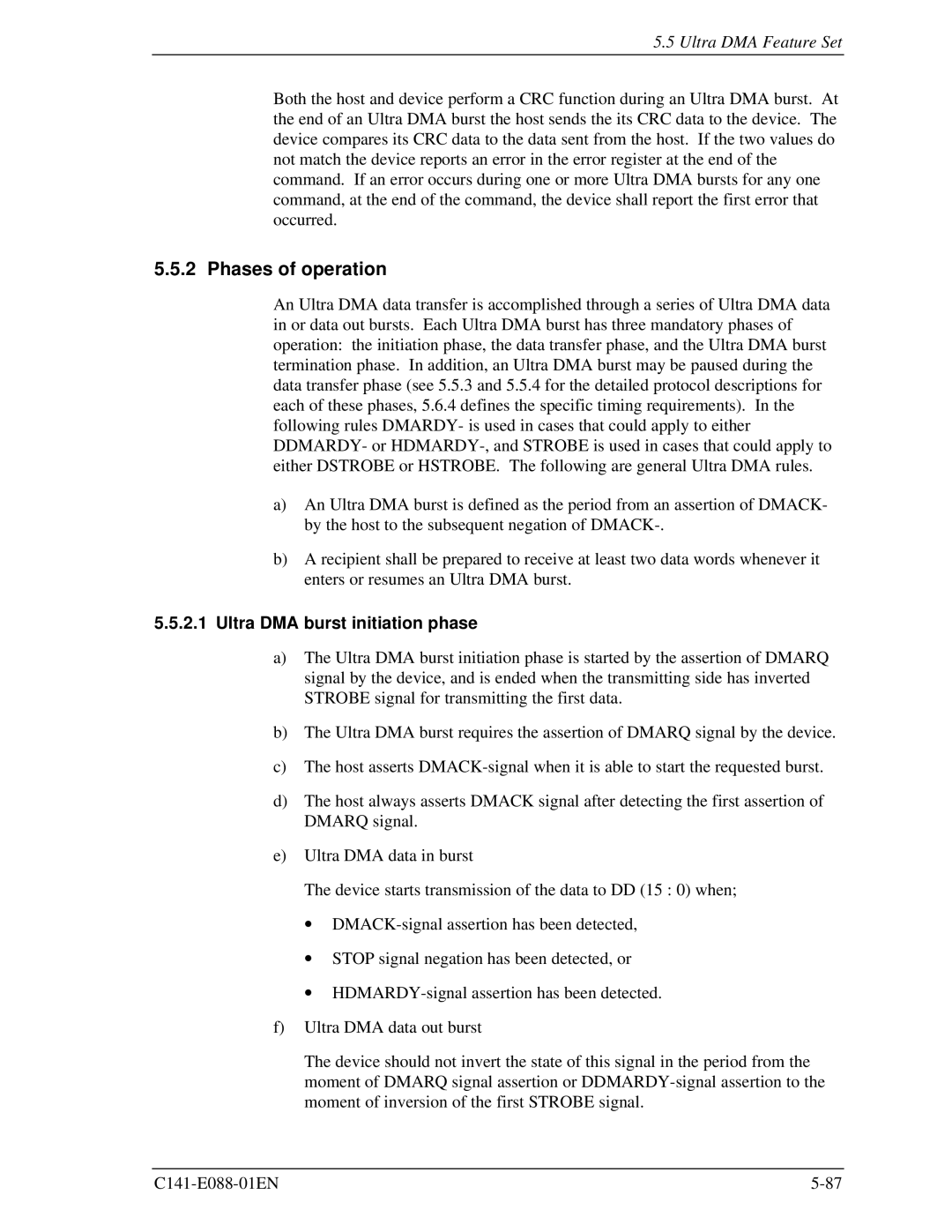
5.5 Ultra DMA Feature Set
Both the host and device perform a CRC function during an Ultra DMA burst. At the end of an Ultra DMA burst the host sends the its CRC data to the device. The device compares its CRC data to the data sent from the host. If the two values do not match the device reports an error in the error register at the end of the command. If an error occurs during one or more Ultra DMA bursts for any one command, at the end of the command, the device shall report the first error that occurred.
5.5.2 Phases of operation
An Ultra DMA data transfer is accomplished through a series of Ultra DMA data in or data out bursts. Each Ultra DMA burst has three mandatory phases of operation: the initiation phase, the data transfer phase, and the Ultra DMA burst termination phase. In addition, an Ultra DMA burst may be paused during the data transfer phase (see 5.5.3 and 5.5.4 for the detailed protocol descriptions for each of these phases, 5.6.4 defines the specific timing requirements). In the following rules DMARDY- is used in cases that could apply to either DDMARDY- or
a)An Ultra DMA burst is defined as the period from an assertion of DMACK- by the host to the subsequent negation of
b)A recipient shall be prepared to receive at least two data words whenever it enters or resumes an Ultra DMA burst.
5.5.2.1Ultra DMA burst initiation phase
a)The Ultra DMA burst initiation phase is started by the assertion of DMARQ signal by the device, and is ended when the transmitting side has inverted STROBE signal for transmitting the first data.
b)The Ultra DMA burst requires the assertion of DMARQ signal by the device.
c)The host asserts
d)The host always asserts DMACK signal after detecting the first assertion of DMARQ signal.
e)Ultra DMA data in burst
The device starts transmission of the data to DD (15 : 0) when;
∙
∙STOP signal negation has been detected, or
∙
f)Ultra DMA data out burst
The device should not invert the state of this signal in the period from the moment of DMARQ signal assertion or
